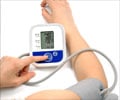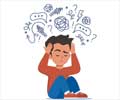New genes associated with the relaxation response, which can lower blood pressure have been identified in a new study.
- Relaxation response alters gene expression in a specific set of genes which help in lowering blood pressure.
- The relaxation response could successfully help reduce blood pressure in hypertensive patients who are not taking medication.
- The changes in gene expression associated with drop in blood pressure are consistent with the physical and inflammatory markers that one would anticipate in patients successfully treated for hypertension.
TOP INSIGHT
Relaxation response reduces blood pressure by altering gene expression associated with immune regulation, metabolism, and circadian rhythm.
The relaxation response
The relaxation response is the physiological and psychological opposite of the well-known fight-or-flight stress response. The response can be achieved through relaxation techniques like yoga or meditation and has been shown to reduce blood pressure in people with hypertension. The relaxation response is characterized by a set of measurable changes to the body, including decreased respiration rate and heart rate. However, the molecular mechanism of how this works has remained unclear.Relaxation response and hypertension
Hypertension or High Blood Pressure affects 1 billion people worldwide and is a major risk factor for heart attack and stroke. Traditionally, high blood pressure is treated with medications, but many patients experience treatment-limiting side effects. Alternative strategies to lower blood pressure are crucial in such patients.The new study has found that the relaxation response can successfully help reduce blood pressure in hypertensive patients who are not taking medication.
Study overview
Fifty eight people with Stage 1 essential hypertension were enrolled in the study. Stage 1 essential hypertension is defined as having a systolic blood pressure between 140-159mm Hg and diastolic between 90-104mm Hg. The participants were either not taking medications or had tapered off them for five weeks prior to the outset of the study. All participants were also asked to fill out standardized questionnaires about stress, depression and anxiety.Over the next eight weeks, participants attended 8 weekly training sessions of mind-body interventions designed to elicit the relaxation response. The training included diaphragmatic breathing, mantra repetition and Mindfulness Meditation.
After the 8 weeks of training, patients were asked to fill out the same stress, depression and anxiety questionnaires. Blood was also drawn from participants for gene expression testing along with blood pressure measurement.
Study findings
- Overall, 13 of the 24 participants who completed the eight-week intervention experienced a clinically relevant drop in blood pressure (below 140/90 mm Hg).
- Patients whose blood pressure dropped below 140/90 mm Hg were called responders while those who still fell within the definition of Stage I hypertension were called non-responders.
- Specific gene expression changes were observed in the responders over the course of the eight-week relaxation response intervention that were not observed in the non-responders.
- Among responders, the expression of 1,771 genes differed between the baseline blood tests and those that were taken after the 8 weeks of relaxation response practice.
- Reduction in blood pressure was correlated with genes linked to immune regulatory pathways, metabolism and glucose metabolism, cardiovascular system development and circadian rhythm.
References:
- Relaxation Response May Reduce Blood Pressure by Altering Expression of a Set of Genes - (https://www.bidmc.org/about-bidmc/news/relaxation-response-may-reduce-blood-pressure-by-altering-expression-of-a-set-of-genes-1)
- Manoj K B, John W D, Jeff C H, Marie G J, Halsey N, Emma C F , Roberta G, Beverly B K, Barbara A M, Gregory L F, Jeffery A D, Herbert B, Randall M Z, Towia A L, “Specific Transcriptome Changes Associated with Blood Pressure Reduction in Hypertensive Patients After Relaxation Response Training”, Journal of Alternative and Complementary Medicine (2018) doi.org/10.1089/acm.2017.0053
Source-Medindia
 MEDINDIA
MEDINDIA





 Email
Email










